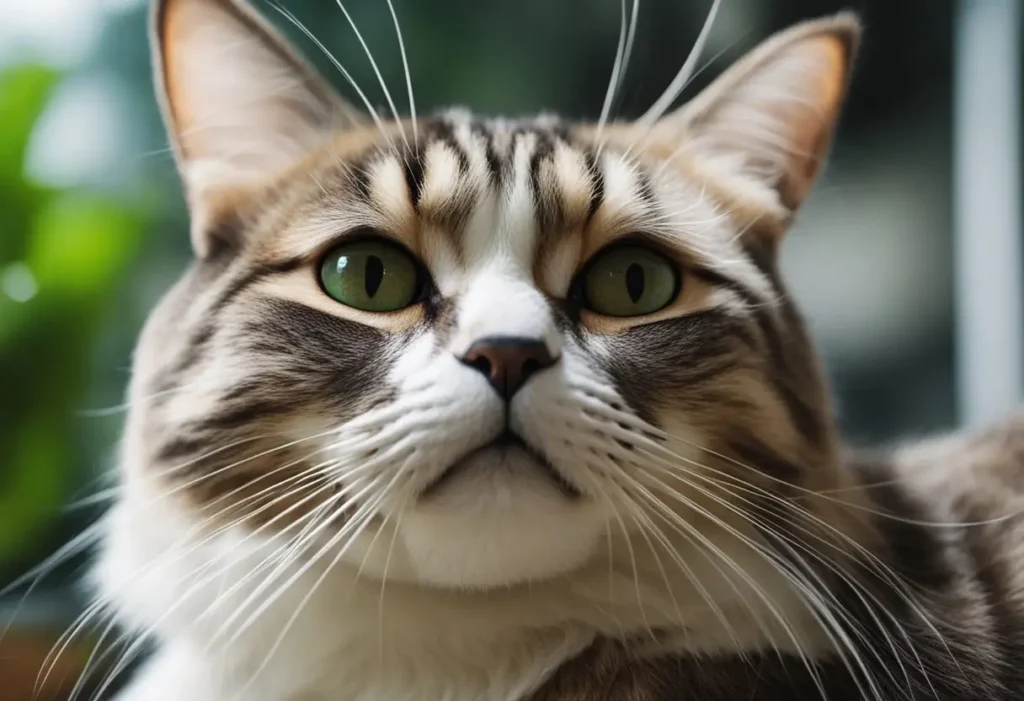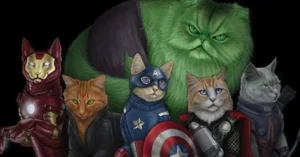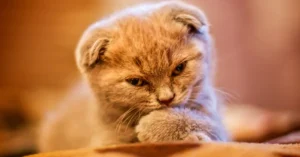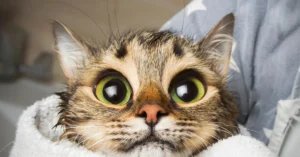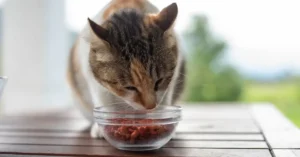When we think of cats, it’s not just their sleek coats and piercing eyes that captivate us—it’s their personalities that truly make each one unique. As we explore the world of cat breed personalities, we uncover a fascinating tapestry of traits that distinguish one breed from another. Each breed carries a legacy of temperament shaped by its history, genetics, and breed standards, painting a broad spectrum of feline dispositions.
Delving into the different cat breed personalities, we find that some are known for their playful energy, while others exude calm independence. Whether it’s the affectionate Siamese demanding your undivided attention or the laid-back Ragdoll content to lounge in silence, there’s a cat breed personality out there that resonates with every one of us. This exploration of cat breed personalities isn’t about pigeonholing our feline friends; it’s about celebrating the quirks and idiosyncrasies that make our relationships with them so rewarding.
Understanding Cat Breed Personalities
As cat enthusiasts, we’re often fascinated by the myriad of cat breed personalities that make each feline truly unique. Each breed brings its own set of traits that can resonate deeply with their human companions.
The Role of Breed in Feline Disposition
Breed often dictates the baseline temperament of a cat. While individual personalities vary, breeds carry genetic predispositions to certain behaviors. For example, Siamese cats are known for being affectionate, vocal, and social, thriving on human interaction.
Personality Traits of Popular Cat Breeds
Each popular breed has distinct personality traits. Persian cats are typically calm and gentle, whereas Maine Coons are playful and friendly with a tendency to be affectionate ‘gentle giants’. On the flip side, a Devon Rex might display more mischievous and energetic behaviors.
Behavioral Patterns Across Breeds
Cats have been domesticated over centuries, yet their inherent behaviors are deeply rooted. For instance, breeds like the Siamese tend to be more talkative and seek constant attention, while others like the Russian Blue are more reserved.

Cat Breed Temperament and Human Interaction
Temperament also plays a key role in how cats interact with children, guests, and their general socialization within the cat community. Breeds like Ragdolls are known for being loving and patient with kids, which makes them ideal for families.
Adaptability of Breeds to Lifestyle Changes
Some breeds adapt to changes and environmental factors better than others. Persian cats, for their part, prefer consistency and might not be as adaptable to a lifestyle shift as a Maine Coon.
Intelligence and Trainability
Regarding intelligence and trainability, breeds such as the Bengal or Siamese can be very responsive to training sessions, indicating higher levels of intelligence and adaptability.
Cat Breeds and Physical Activity Levels
Active breeds like the Bengal or the Siberian exhibit high energy levels, needing more physical activity and playtime, whereas breeds such as Persians are often more aloof and independent.

Grooming Behaviors and Needs
Longer-haired breeds like Persians and Maine Coons have more extensive grooming needs, often requiring daily brushing to maintain their coat and reduce hairballs.
Interactions with Other Cats and Animals
Socialization with other pets can vary significantly with breed; Siamese cats might be more prone to jealousy if not the center of attention, whereas others like Maine Coons are often good-natured around both cats and other animals.
Typical Health Dispositions by Breed
Recognizing health issues and breed predispositions is essential. For example, Siamese may be prone to certain genetic conditions while Persians often suffer from respiratory and eye conditions due to their distinctive facial structure.
Embracing the diversity among cat breed personalities enriches our lives and our understanding of these remarkable companions.
Highlighting Individual Cat Breeds
Cat breed personalities vary immensely, from sociable Siamese to the gentle Maine Coon. We’re diving into the remarkable characteristics that define some of the most beloved breeds.
Siamese Cats: Sociable and Talkative
Siamese cats are known for their outgoing nature and love for conversation. They often express themselves with a distinctive vocalization.
Maine Coons: The Gentle Giants
Among the largest domesticated breeds, Maine Coons are famed for their gentle demeanor, making them great companions.
Persian Cats: The Quiet Companions
Persian cats exude tranquility. With their calm personalities, they are the epitome of the quiet companions.
Devon Rex: The Mischievous Pixies
The Devon Rex breed stands out with their playful antics and energetic spirit, always ready for a game.

The Affectionate Ragdolls
Ragdolls are the definition of docile and affectionate, often going limp with content in your arms.
Exotic Shorthair: The Easy-Going Lap Cats
Exotic Shorthairs strike a balance with their affectionate nature and calm demeanor, perfect as lap cats.
Abyssinian Cats: Curious and Energetic
Abyssinian cats are curious explorers with a zest for life, always active and ready for adventure.
British Shorthair: The Loyal Companion
British Shorthairs are not just chubby cheeks; they are incredibly loyal and affectionate to their human families.
Playful and Energetic Bengals
Bengal cats are a bundle of energy, displaying high-energy levels in their love for playful activities.
The Regal Russian Blues
Russian Blues carry a regal aura, with their dignified posture and engaging in preferred, quiet games.
Scottish Fold: The Adorable Owls
Known for their unique folded ears, Scottish Folds charm us with their adorable, owl-like appearance.
Sphynx: The Hairless Wonder
The hairless Sphynx are extremely affectionate, enjoying the warmth from cuddles, truly a wonder to behold.
Choosing the Right Cat Breed for You
When it comes to finding the feline friend that complements our lives, understanding cat breed personalities is key. Let’s dive into how you can align your lifestyle and desires with the perfect cat companion.

Assessing Your Lifestyle and Preferences
Choosing a cat isn’t just about falling in love with a pair of eyes at the shelter; it’s about finding a compatible match for your lifestyle. We recommend making a list of your daily activities and energy levels. Busy bees might prefer independent breeds, while homebodies could enjoy affectionate lap cats.
Considerations for Families with Children or Other Pets
Families should aim for cat breeds known for their gentle nature and tolerance of children. Similarly, for homes with other pets, seek out sociable breeds that are known to integrate well. Compatibility with the entire household is a must to ensure a harmonious environment.
The Significance of Adoption and Rescue
Adoption from shelters often means giving a second chance to a cat in need. We advocate looking into local rescues or shelters, as many cats are waiting to showcase their loving personalities. Plus, adoption can contribute to combatting overpopulation and homelessness.
Preparing for a Long-Term Commitment
Welcoming a cat means being ready for a commitment that can last upwards of 15 years. This long-term bond requires us to consider our plans, ensuring that our feline friends can remain a cherished part of our lives.
Contributing to Breed Preservation and Diversity
While we might have a specific breed in mind, it’s essential to acknowledge our role in preserving and cherishing the diversity of cat breeds. Choosing responsibly means avoiding support for unethical breeding practices and prioritizing the health and well-being of cats.
By taking these factors into account, we can ensure the cat breed we choose is not only a reflection of our personality but also a fitting addition to our daily lives, ready to share a multitude of joyful moments.

Our Thoughts About Cat Breed Personalities
When we think of cat breed personalities, it’s almost like delving into a feline version of a Myers-Briggs test. Each breed carries with it a unique blend of traits that can be somewhat predictable, giving us a fascinating peek into the type of furry companion we might be welcoming into our homes.
- Maine Coons: Known for their gentle giant persona, we’re always struck by how social and friendly these cats can be.
- Siamese: The chatty Cathies of the cat world, we find their vocalizations as endearing as they are constant.
- Bengals: They show us the wild side of domestic cats with their high energy and breathtaking agility.
We’ve seen that while breed can provide us a sketch of a cat’s potential personality, individuality should never be underestimated. A Maine Coon can be surprisingly introverted, or a Bengal could be a lap cat—it’s the delightful unpredictability of cats!
In our experience, the environment and how a cat is socialized play huge roles in the development of its personality. A loving, stimulating home can mold cat breed personalities in unexpectedly wonderful ways, making every cat’s character a one-of-a-kind tapestry woven with both breed and life experiences.
Considering a new feline friend? It might help to look at these breed personalities as a starting point, but remember, the cat chooses you as much as you choose the cat!
FAQ Cat Breed Personalities
Exploring the world of cat breed personalities can be as thrilling as it is insightful—after all, we’re diving into what makes our feline friends unique. From playful to placid, every cat has a story behind their whiskers.
What cat breed has the best personality?
It’s near impossible to declare a single breed as the “best” since personality preferences can be as varied as the breeds themselves. However, many find that Ragdoll Cats top the charts for their gentle and affectionate nature, often going limp with relaxation when picked up. Remarkably companionable, Ragdolls are also known to greet their owners at the door. For those envisioning a lively and inquisitive feline pal, Siamese Cats stand out with their vocal and sociable demeanor.
Do cat personalities vary by breed?
Absolutely, cat personalities greatly vary by breed. Each breed tends to sport distinctive traits; for example, Maine Coon Cats are famous for their friendly and playful temperament, akin to that of a loving dog. Contrastingly, breeds like the British Shorthair often carry a calm and stoic presence. Such differences are not just behavioral folklore; research supports the idea that genetics play a role in a cat’s behavior patterns.
How do I choose a good cat personality?
Choosing a cat with a personality that aligns with your lifestyle and preferences anchors on understanding breed traits and observing individual quirks. If you lead an active lifestyle, a more energetic and dog-like breed like the Bengal might be your perfect match. For those seeking a quieter and more independent feline, a Persian Cat with its serene and laid-back attitude could be ideal. Meeting the cat and noting their reaction to new environments and interactions is key to finding a good fit.
If you also would like to know something about how to keep cats from eating plants have a look at our article.
If you are curious about do cats eat birds it would be a pleasure if you read our article.
What are your thoughts about cat breed personalities? Let us know in the comments.

